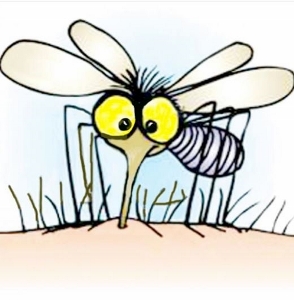Cayman ready to tackle insect spread disease
 (CNS):The World Health Organization is focusing on the problem of diseases carried and spread mostly by insects and pests to mark this year’s World Health Day. Cayman's health minister said officials here are doing all they can to keep Cayman free of these types of diseases but with the recent reports of Chikungunya virus and growth in Denge in our region the public health department also stood ready to tackle the issue should our defences break down. Although the Aedes aegypti mosquito,responsible for the transmission of the Chikungunya virus, dengue and yellow fever among other illnesses, is present in the Cayman Islands, they are still not endemic.
(CNS):The World Health Organization is focusing on the problem of diseases carried and spread mostly by insects and pests to mark this year’s World Health Day. Cayman's health minister said officials here are doing all they can to keep Cayman free of these types of diseases but with the recent reports of Chikungunya virus and growth in Denge in our region the public health department also stood ready to tackle the issue should our defences break down. Although the Aedes aegypti mosquito,responsible for the transmission of the Chikungunya virus, dengue and yellow fever among other illnesses, is present in the Cayman Islands, they are still not endemic.
Prior to 2004, it was rare for Aedes aegypti to breed locally. After the passing of Hurricane Ivan however, breeding became established and widespread, until it was brought under control by the Mosquito Research Control unit (MRCU). But with climate change dengue has become the fastest growing vector-borne disease around the world AND Cayman is by no means immune, having seen several cases oflocal transmission as well as imported cases.
Osbourne Bodden said in a world health day message that he was committed to supporting the wide variety of disease prevention measures implemented by the MRCU, public health and environmental health
“These agencies aim to continuously improve integrated surveillance of vectors and to take measures to prevent their proliferation,” he said. “We are also steadfast in our promise to strengthen the capacity of our Public Health Department to respond to actual and emerging threats. Our Communicable Disease Surveillance and Response Team is a multi-sectoral group led by the Public Health Department, which stands ready, with plans in place in the event of an outbreak.”
Nevertheless Bodden urged the public to help prevent the spread of disease by unblocking gutters and drains, disposing of garbage, old tyres and anything that holds water, frequently changing water in animal bowls, potted plants or ornaments, and avoiding mosquito bites.
See full message from the health minister below
Category: Health


This article is filled with misinformation. These mosquitos were found in great numbers in Grand Cayman when scientists first looked for them back in the '30's. They were eradicated a couple of different times, starting in the '50's, but have returned repeatedly. They may not be endemic at the moment, but Grand Cayman has always been perfect habitat for them. Since their range on this side of the globe is from the northern US gulf coast to Argentina, it is hard to see how global warming has anything to to do with them being in Grand Cayman at this time.